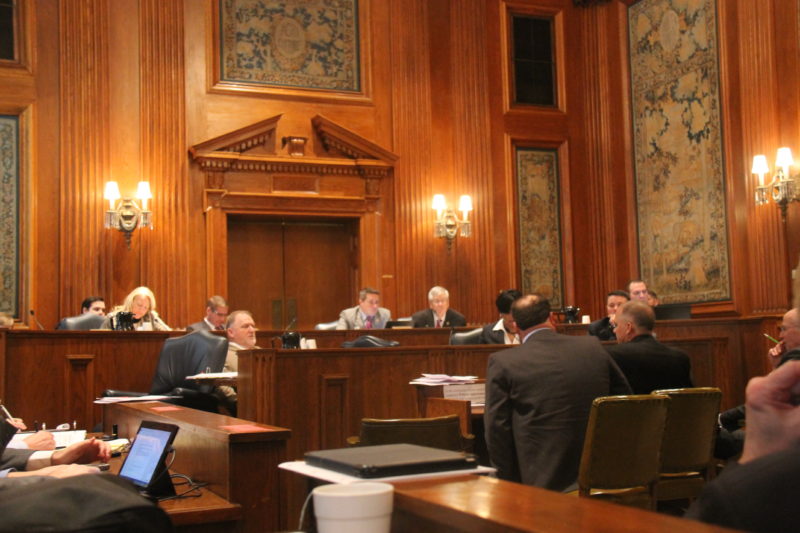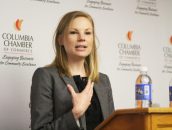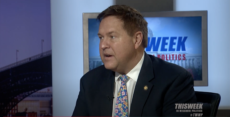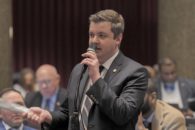JEFFERSON CITY, Mo. – Following a long night of debate on the Senate floor, members of the Senate Committee on Rules, Joint Rules, Resolutions and Ethics took up the issue of ethics reform once again.
Tuesday morning’s hearing consisted of the presentation of two bills, Sen. Mike Kehoe’s SB 305 and Rep. Justin Alferman’s HB 60, which passed out of the House earlier this month.
“There’s been a lot of conversation about trying to work through a reasonable gift ban that works for all parties involved which convey to the public that their elected officials are not for sale,” Kehoe said. “But we also don’t want to create a bill that tricks into getting in trouble.”
Both bills seek to change the rules as they apply to gifts from lobbyists, including the requiring of advanced reporting of expenditures for an event in Missouri, but the two differ in a couple of different ways.
HB 60 places a ban on all gifts from lobbyists, with a few exemptions listed in the bill language. That bill does not include a monetary amount, as it seeks to limit all gifts. Gov. Eric Greitens has called for a total ban on the issue
Kehoe’s SB 305 would place a $10 cap on any expenditure from lobbyists on any given day. He refers to it as a “cup of coffee” rule, saying it’s a lower limit, and that seeing someone for a cup of coffee should not be considered influential.
One of the concerns that Kehoe expressed was how the bills would apply if a lawmaker attended a board or organization event as part of their normal day jobs.
Alferman said that concern was one of the unintended consequences that had risen from the proposals and had not been addressed. He did say he was open to discussing suggestions as for how to find a solution to the matter.
Another difference is that the Senate bill puts a $50 cap on honorariums, such as plaques and awards.
The concerns, and indeed the driving thoughts behind the bills, is to cut down on the influence of lobbyists in the Capitol. Many argue that the gifts, dinners, etc. are an attempt to buy time with the lawmakers in order to discuss and push their agenda.
“Whether you have a gift ban or not, lobbyists are going to want to meet with elected officials to talk about their particular issues,” Kehoe said.
Sen. Jason Holsman said that a lobbyist gift ban may miss the mark in establishing any meaningful ethical reforms.
“Until we get true transparency, all of this won’t solve any problems that we have,” Holsman said.
Holsman said that he has “banned himself” from receiving lobbyist gifts and has not accepted on in three years.
“I can tell you that my meetings, discussions, and interactions with lobbyists have not changed in the last three years,” he said. “My performance has not changed. So, I just don’t know that at the end of the day this is going to change the performance when three years has not changed my performance.”
Still, both chambers seem to be moving quickly in their work on ethics reform, and Alferman says that he’s glad to see many similarities between the two versions of the bill.
“The questions now are this: do we do an all-out ban, or set a cap, and what will have the muster to pass the Senate?” Alferman said. “The good thing is that it is moving the discussion forward. The fact that we’re still in January is really promising.”
The question also now becomes whether Gov. Eric Greitens will accept a bill that does not put a total ban in place, as he has wanted.
Greitens became an engaged party in the Senate’s debate over pay raises Monday night, and Alferman says this may be another instance in which he may strongly advocate to get one of his top priorities through the legislature.
“In all of this, too, we will have to have a discussion with the Governor’s Office as well on what is going to be palatable to gain his signature,” Alferman said.
Benjamin Peters was a reporter for The Missouri Times and Missouri Times Magazine and also produced the #MoLeg Podcast. He joined The Missouri Times in 2016 after working as a sports editor and TV news producer in mid-Missouri. Benjamin is a graduate of Missouri State University in Springfield.
















